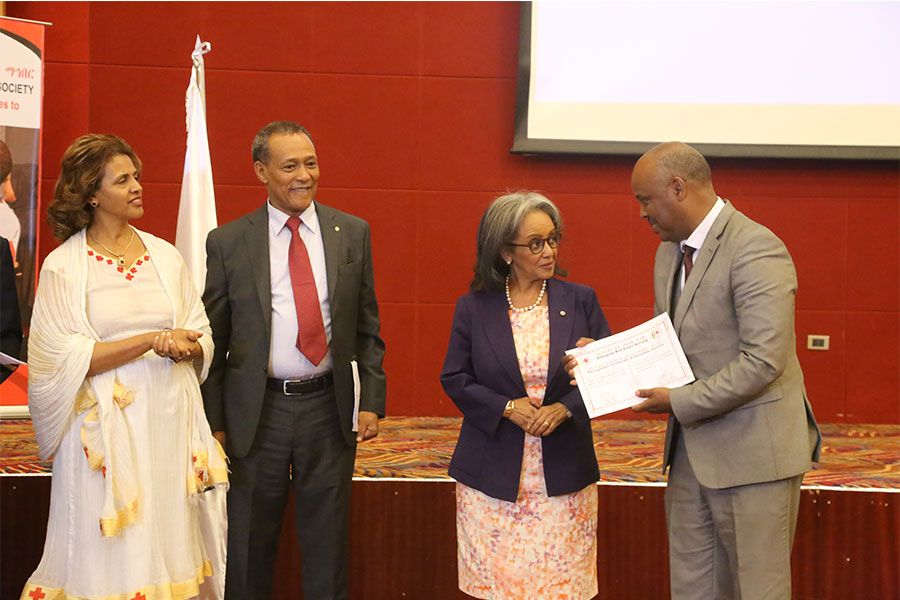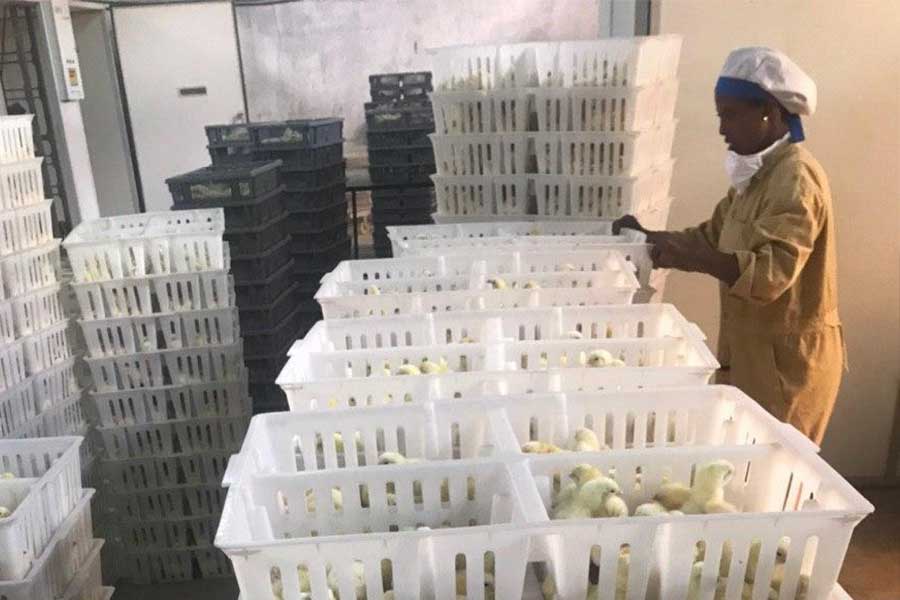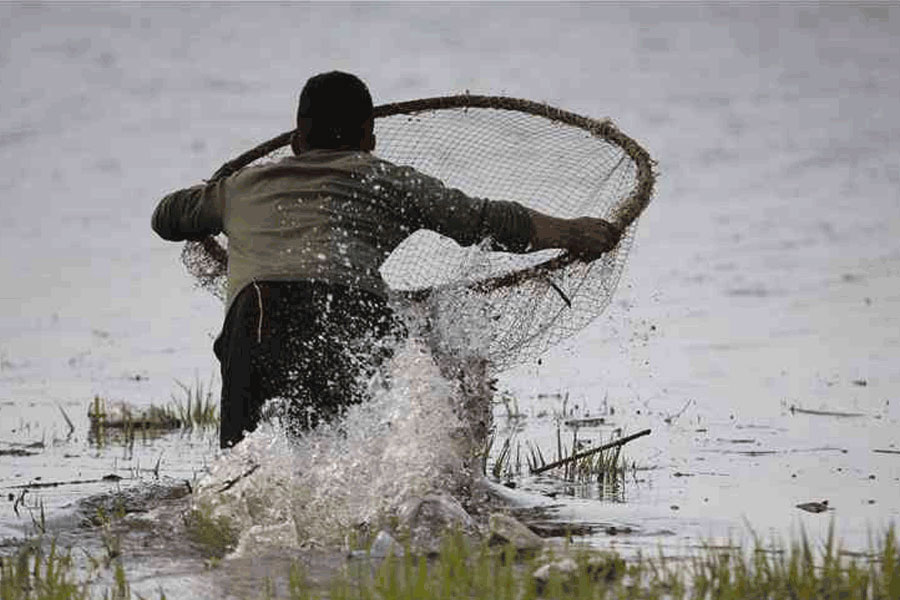
Radar | Dec 19,2018
Ethiopia’s flower industry, the second-largest exporter to Europe, has started to witness a rise in demand with a total of 32.8 million dollars in revenues earned from roses and summer flowers in the last month.
With the Novel Coronavirus (COVID-19) proliferating globally, the flower sector was at the verge of disaster with destination countries in Europe and the Middle East shutting their doors, putting at stake thousands of jobs in an industry that supports 150,000 employees in the country.
However, as of last month, since some European countries like Germany and the Netherlands have started to ease lockdown restrictions, the flower export revenues of the country have reached 166pc of the goal set by the Ministry of Agriculture for the past 11 months of the current fiscal year.
During the months of April and March, the horticulture farms had been disposing of millions of flower stems, in the fear of uprooting the parent plant, and incurred a loss of 25 million dollars. Most of them also struggled to retain their employees.
"We stopped dumping flower stems at the beginning of May," said Zelalem Mesele, president of the Ethiopian Horticulture Producers & Exporters Association and owner of ZK Flower.
Tana Flora Plc, which was established in 2008 and now has farms in Wengita, Bahir Dar and Addis Abeba, has resumed service to its export destinations, mainly to the Netherlands and countries in the Middle East, primarily through auction markets. The exporter, which used to export 810 boxes a day, is now selling 190 to 540 boxes each day.
"We've lost one of the prime seasons for the export of flowers," said Nega Mekunanit, general manager of Tana, which has over 700 employees under its wing. "We're seeing a ray of hope now."
In the last 11 months, the horticulture sector has generated 438.3 million dollars in revenues, according to the May report from the Ministry of Agriculture.
The industry has exported a total of 77,000tn of summer flowers and roses for 351.8 million dollars over the last 11 months, whereas just 53.2 million dollars has been earned for 159,000tn of fruits and vegetables.
The misfortunes of the pandemic have created an opportunity for the Ethiopian flower export market, according to Wondale Habtamu, state minister for Agriculture.
"With the reduced price of Ethiopian Airlines coupled with efficient logistics," he said, "it has provided the leg-up the sector desperately needs right now as compared to other competitors."
Sher Ethiopia, which has farms in Ziway, Adami Tulu and Koka, has been exporting 60tn a day on average recently. This number is still close to 15pc less than what the company used to export before COVID-19.
"We haven't stopped exporting even during the hard times," said a senior executive at Sher Ethiopia, which was established in 2006 and currently has 11,000 employees exporting mainly to Holland, England and Germany. "Although the amount has dropped by half."
The other benefit for the sector is the drop in the power of the dollar against the euro. The dollar lost approximately 1.4pc against the euro during the month of May.
"Though the power of the dollar is dropping as compared to the euro," she said, "our expenses are with dollars even though the income is in euros."
After the sector was hit hard by the pandemic, the National Bank of Ethiopia (NBE) recommended bank loan rescheduling for borrowers from the industry, financing interest on principal loans, and the temporary suspension of the 3.80 dollar payment for every kilogram of flowers exported.
Ethiopia, which is the second-largest flower exporter in Africa next to Kenya, currently has over 72 active flower farms that are involved in the production of different varieties of flowers. Horticulture represents close to 31pc of the agricultural export sector and has total coverage of 10,897ha of land.
The horticulture industry in the country has over 126 investments engaged in the export of flowers, fruits, herbs and vegetables that generated over 300 million dollars in the last fiscal year.
It will be a long time before the sector is back on track, and the government needs to actively assist the sector in setting its foot back in the market, according to an agricultural economist who wanted to remain anonymous.
"Since the sector is very young in the country," the expert said, "the government needs to devise a horticulture policy for further development of the sector in these dire times."
Hussien Mohammed, an associate professor at Hawassa University School of Horticulture & Plant Science, believes that the government played an instrumental role with its immediate solution when the outbreak affected growers.
The pandemic hit domestic investors hard, while international investors have well-founded management when it comes to handling this kind of crisis in terms of insurance and agreements, according to him.
"For most of the time, the horticulture market is a private market, and it's led through that way," he said. "But with this small opening, growers have to increase production to make up for the lost seasons."
PUBLISHED ON
Jun 14,2020 [ VOL
21 , NO
1051]

Commentaries | Apr 22,2022

Election 2021 coverage | Feb 18,2020

Covid-19 | Apr 17,2020

Fortune News | Sep 02,2023

Radar | Mar 14,2020

Dec 22 , 2024 . By TIZITA SHEWAFERAW
Charged with transforming colossal state-owned enterprises into modern and competitiv...

Aug 18 , 2024 . By AKSAH ITALO
Although predictable Yonas Zerihun's job in the ride-hailing service is not immune to...

Jul 28 , 2024 . By TIZITA SHEWAFERAW
Unhabitual, perhaps too many, Samuel Gebreyohannes, 38, used to occasionally enjoy a couple of beers at breakfast. However, he recently swit...

Jul 13 , 2024 . By AKSAH ITALO
Investors who rely on tractors, trucks, and field vehicles for commuting, transporting commodities, and f...

Sep 13 , 2025
At its launch in Nairobi two years ago, the Africa Climate Summit was billed as the f...

Sep 6 , 2025
The dawn of a new year is more than a simple turning of the calendar. It is a moment...

Aug 30 , 2025
For Germans, Otto von Bismarck is first remembered as the architect of a unified nati...

Aug 23 , 2025
Banks have a new obsession. After decades chasing deposits and, more recently, digita...